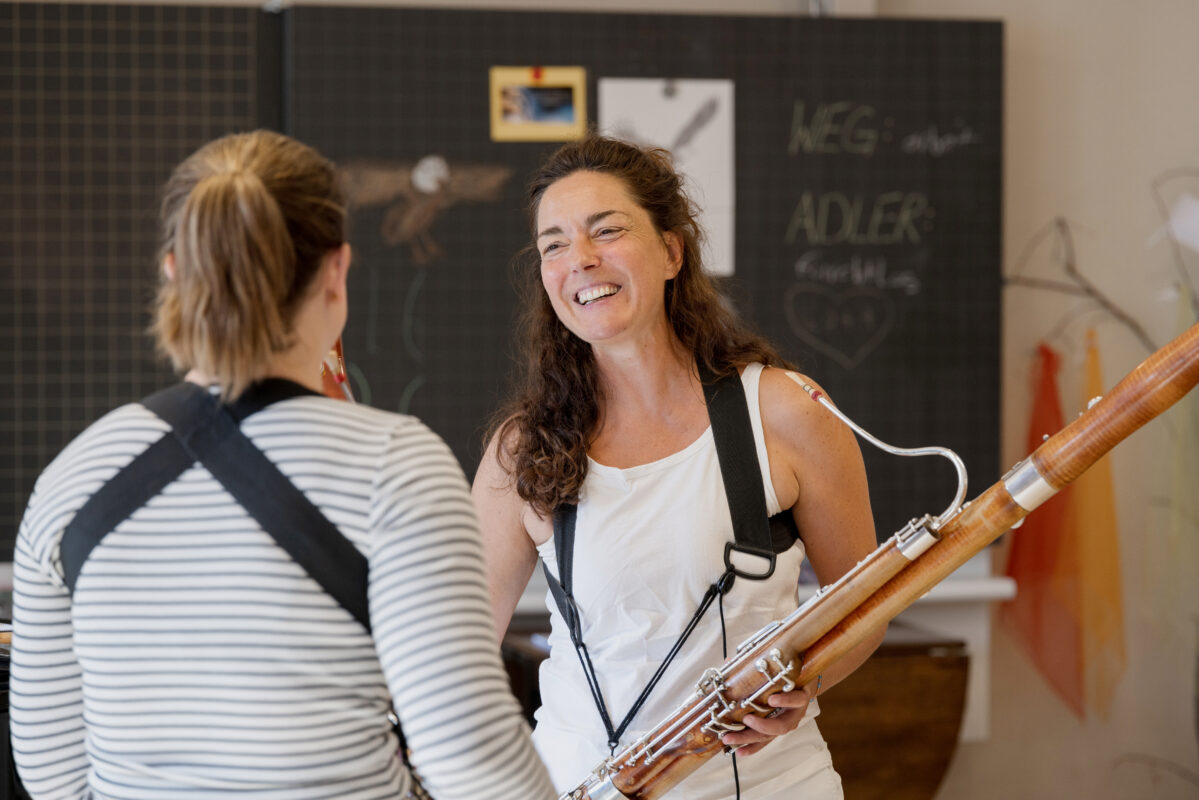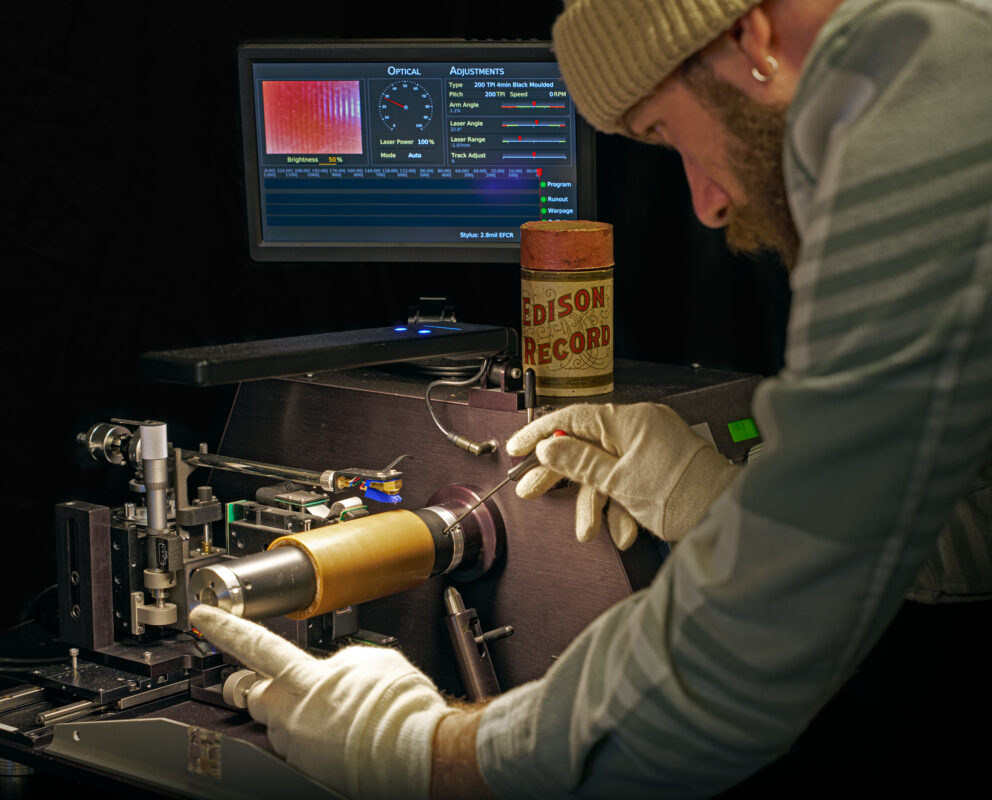Artificial intelligence and music
The ambivalent relationship between art and technology has been gaining momentum again for some time now. The reason for this is generative artificial intelligence with its revolutionization of creative processes.
There are still people who press the "2" button three times on their old cell phone to type the letter "c" in a text message. However, the progress-oriented and competitive order in which we live makes the number pad devotees into out-ers and everyone else into insiders. As a rule, we can't afford to invest more time than necessary in anything. New ground-breaking technologies that save us time on everyday things are therefore bound to fascinate us - and they also make us a little nervous at the same time.
Artists are very familiar with the oscillation between fascination and nervousness about technological progress. Friedrich Nietzsche, for example, warned against the typewriter in 1882. He wrote (ironically on his new typewriter): "Our writing utensils collaborate in our thoughts". However, skepticism towards the new never really took hold, neither then nor later. In hindsight, this is a good thing, because after all, the typewriter helped with writing books. And even after that, the phonograph never pushed the live concert out of the market, nor did the cinema put an end to the theater.
The new phenomenon that we're not so sure we should really be embracing is called Generative Artificial Intelligence, or GenAI for short (or simply "AI") - again, both fascinating and unnerving at the same time. It is fascinating that this technology can compose, arrange, produce, mix and master music within seconds. What makes people nervous is the fear of their own dispensability and the associated financial bottlenecks, as well as the concern about the possible extinction of "real" music. Should creatives use this tool or not? Should art colleges even teach how to use GenAI? And where does that lead?
There is one fundamental difference between GenAI and earlier technical achievements that needs to be looked at more closely: Strictly speaking, GenAI does not work, but reacts. In other words, it does not do what it is instructed ("prompted") to do, but what it most probably wanted to be instructed to do. For example, if you enter the letter "c" in the input field of a text-generating AI, the AI does not write a "c", but something like "Hey! You only wrote a 'c' - was that a mistake or do you need help with something specific?" So if you just want the AI to write the letter "c", you have to tell it to "Write the letter 'c'!". To write a new book (yourself), you are therefore better equipped with a typewriter (or even the number pad of an old cell phone) as a tool. However, if you simply want to (have a new book generated), ChatGPT is probably the more efficient tool (regardless of the qualitative component).
Basically, making music is about carefully realizing an idea; by controlling parameters, analysing the result, comparing the intermediate result with the underlying idea, realigning the parameters, etc. Composing, producing and interpreting is therefore the actual interface between (inaudible) ideas and (audible) musical works. If this interface can now be completely automated, we can at best speak of music in the case of the audible, but this music was not created but merely discovered. We still have to determine the cultural value of such music, but from a legal point of view the situation is clear: it is not the discovered music that is eligible for copyright protection, but only the mentally created music.
Against this backdrop, it would be misguided to conclude that making music is now everyone's business. However, this insight will be of little consolation if at some point music-making can no longer be monetized because generating music with a click is much cheaper and faster. However, it will hardly be possible to counteract this on an artistic level, but rather on a regulatory level.
With regard to the artistic use of GenAI, it is to be hoped that this new technology will also produce unexpected results in music. After all, there is nothing fundamentally wrong with the fact that our writing utensils contribute to our thoughts, as long as there is still collaboration between man and machine. However, the creative process that realizes the idea should not be left entirely to chance or to the inscrutable algorithm. A tool is only a tool that can be used as such, i.e. that can be operated in a targeted manner. In this respect, the art - perhaps even in the literal sense - lies in using GenAI like a tool: it should work, not react freely.
Noah Martin
... heads the General Secretariat of SUISA and is responsible for the AI dossier.








